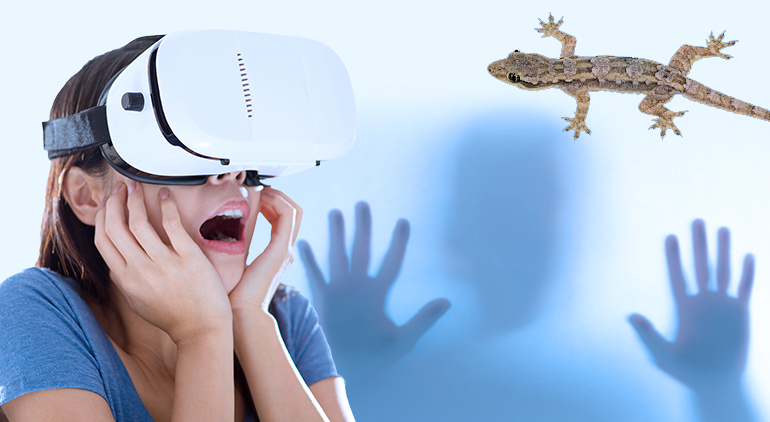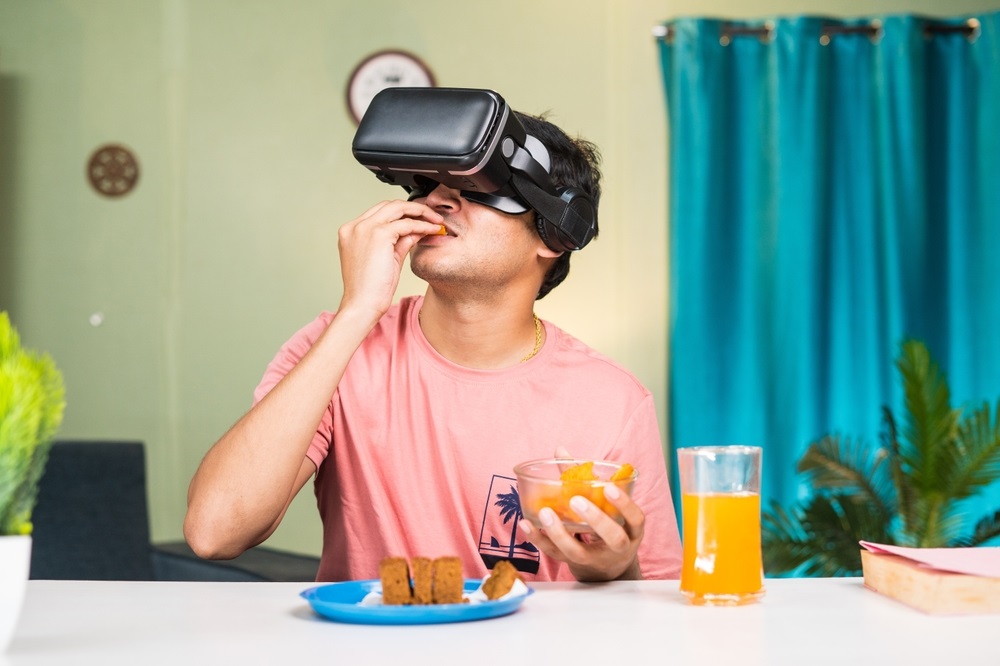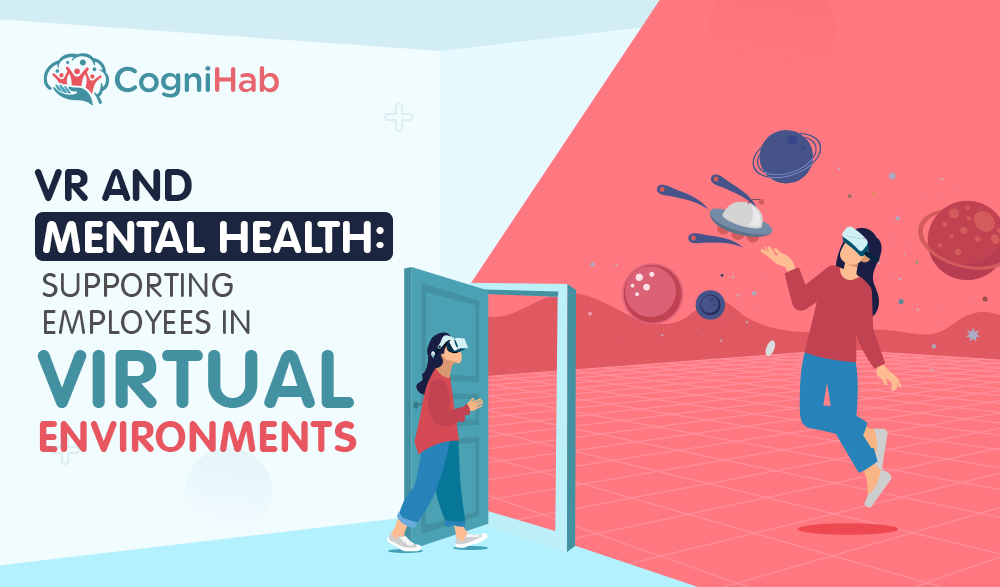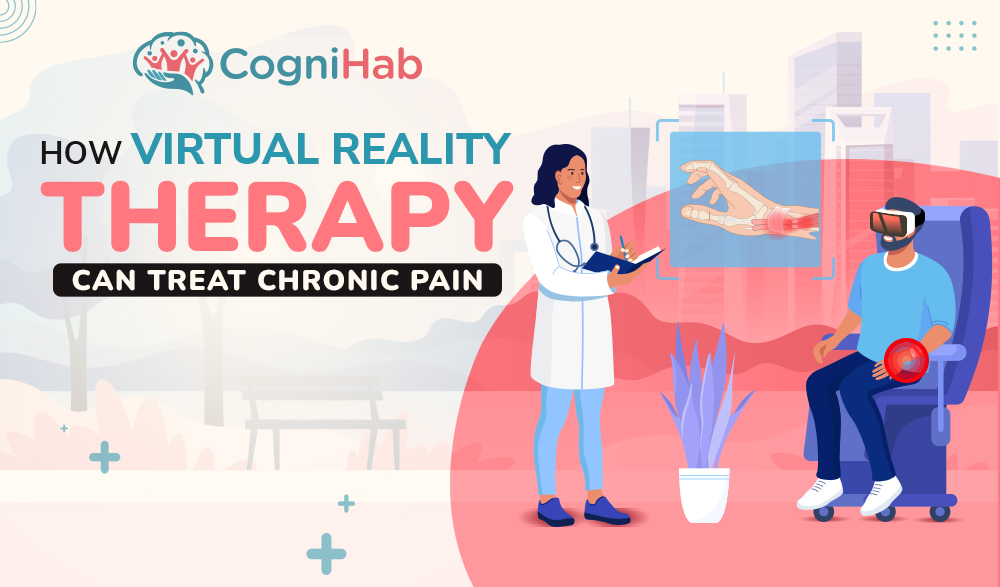Treating Depression and Anxiety with Virtual Reality
“Although the world is full of suffering, it is also full of the overcoming of it” - Helen Keller
According to The World Health Organization, more than 264 million people of all ages suffer from depression and anxiety disorder, making them a common mental disorder globally. So much so, that depression and anxiety are some of the leading contributors to the overall global burden of diseases.
Depression should not be confused with regular mood fluctuations or short-lived emotional breakdown because of multiple challenges in regular lives. Depression can be classified as a mood disorder.
It is long-lasting feelings of sadness, loss, or anger with severe to moderate intensity that can hinder an individual’s daily activities. At its worst, depression can become a serious health condition and the affected person suffers greatly, reducing their potential to function properly.
Depression results from a multifaceted interplay of social, psychological, and biological factors. Usually, people who have experienced adverse life events like sudden unemployment, severe psychological trauma, drug abuse, or chronic illnesses, are more likely to develop depression.
Depression can result in more stress and dysfunction and worsen the affected person’s life situation.
VR for Depression
Depression can be treated as there are effective treatments for moderate and severe depression. Virtual reality is an accessible consumer-targeted technology, which is used in the treatment of depression.
Healthcare providers offer cognitive-behavioral VR therapy for depression, which is incorporated in the virtual reality modality for a positive outcome.
Virtual reality provides unique experiences, such as alternative embodiment and virtual pet interaction, which can be extremely therapeutic in the treatment of depression and anxiety and have a great potential in dealing with mental health issues and well-being.
How to Treat Depression Virtual Reality
Cognitive behavior therapy (CBT), is a collection of therapeutic techniques that promote changes in behavior and cognition. This is an evidence-based intervention for depression and is effective in reducing symptoms of the same.
Virtual reality technology has the potential to act as a delivery format for CBT in dealing with depression.
This technology allows the user to feel immersed in a virtual, computer-generated world that is achieved using a head-mounted display that creates the illusion of realistic perception. The head movements allow the experience to be interactive in the virtual environment.
Sound effects are used to strengthen immersion and portray the simulation.
Psychotherapeutic techniques for coping up with depression entail psychoeducation. Immersive VR experiences by bridging the gap between the therapeutic context and the real-life setting are well suited for passive yet efficacious psychoeducation.
A combination of behavioral and physical activity with virtual reality can achieve better antidepressant effects, by engaging in virtual social gatherings, as opposed to traditional physical activity. Virtual reality is also well suited for the training of social skills.
This therapy includes virtual conversational agents and immersive experiences. Moreover, it has shown promising results for autism treatment and will yield uniformly good outcomes for depression.
Virtual reality is utilized to function as an interactive visualization that supports an effective cognitive restructuring of those people suffering from depression. Virtual reality can generate and manipulate users and can examine therapeutic material in an immersive manner.
Can Virtual Reality Help With Anxiety?
Anxiety disorder is a common form of emotional disorder in the modern-day world. Though being anxious is a normal human tendency, the problem arises when the feeling of anxiety proliferates and begins to interfere with your daily life and well-being. Anxiety disorder induces a feeling of apprehension and uncertainty and leads to stress.
Depression and anxiety can occur simultaneously.
Virtual Reality Exposure Therapy For Anxiety Disorders
Anxiety disorders are among the most common mental disorders affecting nearly 18.1% of adults. Anxiety symptoms can cause significant distress, impair quality of life, and increase stress.
However, virtual reality exposure therapy can be incorporated to improve treatment for anxiety, which can aid healthcare givers to treat a host of symptoms associated with an anxiety disorder. Virtual reality technology can render patients with a physiologically and emotionally strengthening experience, which can make it a valuable tool for mental health treatment.
Virtual reality technology can render patients with a physiologically and emotionally strengthening experience, which can make it a valuable tool for mental health treatment.
VRET permits individualized, progressive, restrained, immersive exposure that allows users to exercise behavioral skills in a secured and supervised environment, through the support of a therapist.
Virtual reality exposure therapy has been used for treating a variety of maladies including social anxiety, Post-Traumatic Stress Disorder (PTSD), panic disorder, etc.
Exposure therapy includes progressive and rehashed exposure to certain stimuli, that arouse the feeling of fear in users. This consequently improves their cognitive behaviours, emotional and physical responses.
Feared stimuli can include organisms, objects, harsh situations, difficult activities, scary thoughts, impulsive mental images, painful physical symptoms, or affective experiences.
The gradual effect of Virtual reality exposure therapy helps in reducing the fear symptoms, which eventually diminish the anxiety disorder associated with feared stimuli.
Related post: Role of Virtual Reality in Anxiety Reduction
Virtual Reality Mental Health Training:
Virtual reality is a clinically appropriate treatment for many existing CBT techniques for it renders, unique personalized experiences that can be used for anti-depressive methods.
Consumer-targeted and user-friendly virtual reality interventions based on therapeutic techniques are proven to have colossal potential to enhance the efficacy of depression treatment.
Simultaneously, virtual reality exposure therapy for anxiety disorders may improve the speed and accuracy of the diagnosis of patients with anxiety disorders. It will allow them to render appropriate treatment by improving patient outcomes.
Therefore, the potential of VR to help assess mental health conditions and virtual reality-based mental health training can influence public mental health.
Cognihab’s virtual reality-generated solution is transforming the traditional healthcare system with advanced technology-based solutions.
Cognihab's VR Anxiety Reduction Suite is the world's first immersive all-in-one relaxation suite that provides guaranteed mood upliftment and is suitable for stressed individuals, depression, recovering patients, surgical patients & kids with disabilities.







